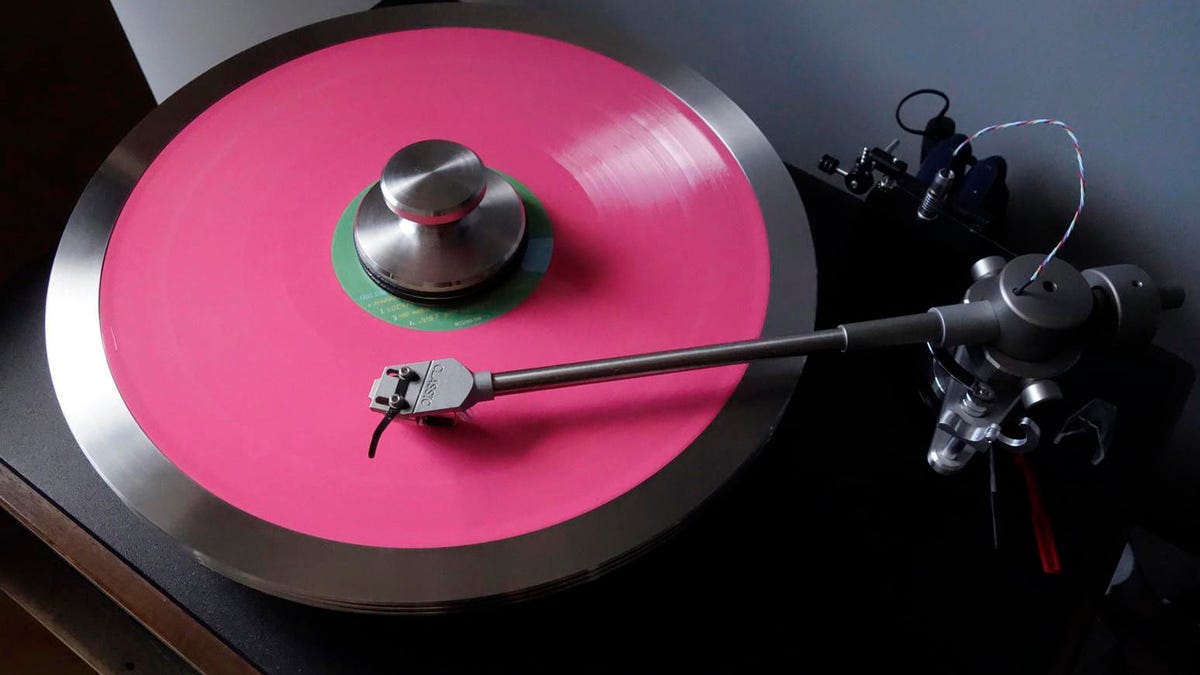Why do LPs sound so good?
The LP boom shows no signs of slowing, and no one really knows why.

The continuing audiophile fascination with LPs is a mystery, LPs are ancient tech, records can be noisy, they're fragile, expensive and they take up a lot of space. The best turntables, high quality phono cartridges, and preamps can cost a fortune. Even so, a lot of audiophiles still favor LPs, I know I do.
Playing audio files is gigantically more convenient than playing an LP, digital converter technology is getting better every year, and high-resolution files are clearer than the best LPs. Digital is eminently portable; LP playback is strictly a stay-at-home affair. So why are audiophiles still clinging to LPs? Ask them why, and they all say the sound comes first -- and I agree. Music sounds better played on a good turntable than it does from files or CDs.
Read: Best turntables under $300
The sound is the thing, but I'd also concede "gear love" is part of the reason we love playing LPs. Turntables look and feel cool. Digital gear is less touchy-feely, and with smart speakers you can play all the music you want without ever touching them. Digital audio is more like an appliance -- it just gets the job done without asking much from you. Maybe that's part of the reason LP fanatics find digital soulless.
Of course, not every audiophile adores vinyl , and lots of older audiophiles who grew up playing vinyl were quick to abandon it for CDs and have never looked back. True, but a sizeable number of millennials who grew up with digital music are now the most fervent converts to the joys of vinyl. And some of those baby boomers who jettisoned vinyl in the 1980s are coming back.
No one's arguing that turntables are more accurate than digital audio, just that vinyl aficionados love the sound of their records. Analog tape and LPs aren't perfect, we like them for their sound as it is, making them technically better doesn't always make them sound subjectively better.
Playing a record uses a stylus tracking a groove etched into a piece of plastic spinning at 33.3 revolutions per minute. How could that possibly sound like real music? But it does it so well even the very best digital can't match it, and no one seems to be able to explain why. There's magic in the sound of analog audio.
I can offer no better proof of that than to point out that some recording and mixing engineers transfer digital tracks to tape to add some analog "flavor" to their digital recordings. It never goes the other way around; no one converts their analog recordings to digital to add digital sound to their analog recordings! It's worth adding that while analog recordings are mastered to digital for streaming and CD purposes, it's not as an "effect."
The Rega Planar 3 turntable review.
Fact is, neither analog or digital audio sounds exactly like live music -- both still fall far from the mark. I love this comment I read on YouTube on the subject, "We live, we breathe, we interact, we exist in a messy analog world, not a digital one."
As for where to start your vinyl journey, check out the Audio Technica AT LP60 turntable, which sells for just $99 in the US, £140 in the UK and AU$199 in Australia. For a more audiophile experience move up to a Rega Planar 3 turntable, that one goes for $945 in the US, £550 in the UK, and AU$1,149 in Australia.
I suppose the day will come when digital audio satisfies even the most zealous analog faithful. Right now if you count yourself as a "vinyl virgin," go ahead and listen to a few LPs and let your ears be the final judges.
This straight-up audiophile turntable costs less than you'd think

